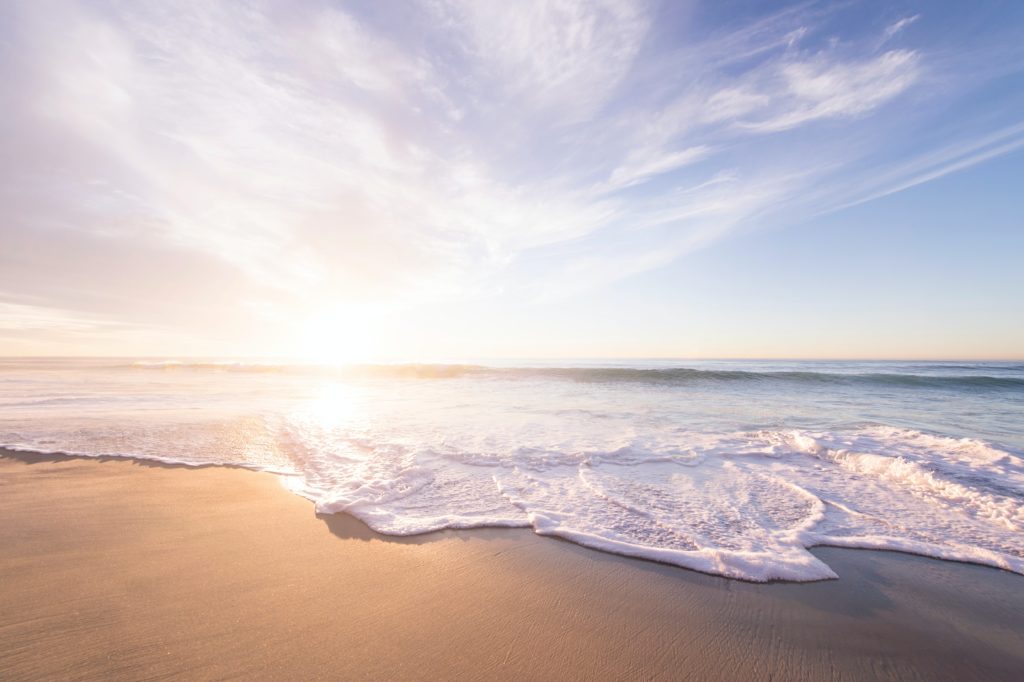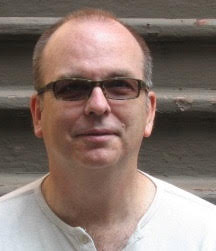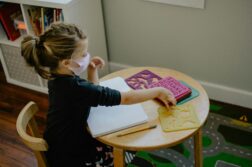
IN 1996, I was on the beach at Fire Island Pines. It was an exquisite summer day, and the sea was dazzling. But the beauty of the day belied the reality underneath: The Pines had become one of the epicenters of the HIV/AIDS epidemic.
When my lover (now my husband) Howard and I would walk the boardwalks toward evening in what should have been the height of the season, the Pines was a ghost town. Beach homes worth millions sat deserted with “For Sale” signs. Mothers, fathers, and nervous siblings could be seen carrying bags of trash from what had been their sons’ Shangri-las—to some, their “dens of sin.” These prodigal sons had bequeathed their beloved houses to bewildered families. Stunned mothers and fathers walked about confused or more commonly repulsed. In the early to mid-’90s, these million-dollar homes were going for a song. They held no value now to these Midwestern heirs who could not even fathom that such a place existed. Sickly and thin, their sons had returned to their small towns to die.
To Howard and me—who recalled the gaunt specters of men covered in K.S. lesions shuffling to the harbor with wheeled I.V. poles, or sitting in wheelchairs covered and draped in sheets to protect them from the sun—the Pines had become a strange netherworld of suffering. Amid its beauty and all those once familiar places—the Pavilion where we danced until dawn, the harbor with its ostentatious yachts making their yearly visits from Ft. Lauderdale, the Pantry, a gourmet grocery with caviar and Wheaties—a chilling silence reigned. The likes of Madonna, theatrical icon Charles Busch, and Dr. Ruth had long departed. Calvin Klein no longer stood on the iconic Botel steps at Tea.
The flower shop that sold thousand-dollar floral bouquets, ready-made for chic dinner parties, the last-minute purchase of a harried host, now had become an HIV/AIDS pharmacy. The world’s first AIDS service organization, Gay Men’s Health Crisis, had set up a drive to provide free condoms. Near the gate where the ferry boats arrived, two buff men handed out these candy-colored necessities alongside printed cards on safer sex.
Later, state officials gave us survey forms to check off our sexual practices: top or bottom? how many partners? were they friends or strangers? It was unsettling to feel oneself a medical specimen, or an endangered species. We were still being cast as animals in our promiscuous mating habits and crude sex acts, comingling in a nonprocreative act just for the pleasure of it. We were pariahs, lepers, and breeders of disease.
Month by month, friends and acquaintances from the gym grew thinner and thinner as they stood upon the beach docks watching sunsets, solitary or next to lovers witnessing their slow extinction. The beaches emptied. The large entourages of handsome men parading up and down the beach to be admired by the men peeking out from behind their Sunday New York Times were gone. The young men who handed out invitations to lavish private parties, so selective in their chore to find the prettiest crowd, had long vanished.
In the beginning, the hospital visits to friends were distanced affairs: wary of each other, we struggled just to touch. Gown and gloves were required in solitary and quiet isolation rooms; food trays were left outside doors by fearful aides. Signage everywhere warned of possible exposure and every wall, every door, every nurse’s station, bore the rules of our new reality: “universal precautions,” “body fluids precaution,” “gown and gloves”—all synonymous with AIDS.
As a physical therapist at the time, I had a front-row seat. I experienced a disconnect then as now, with the Covid pandemic raging: the brutal dual realities of an isolation ward with distorted and soiled skeletal frames lying in their death beds and the view of the street where I saw breezy New Yorkers still shopping on Madison Avenue, traipsing off to trendy restaurants, flying on the Concorde to Europe.
And then as now I witnessed the strange ritual of someone being admitted to the hospital one day and being dead and gone by the next morning. I saw the sheet-covered gurneys waiting to be wheeled to the overflowing morgue. Emotionally it was hard to go through these serial deaths time and time again—to comfort and yet fear, to feel the guilt, obliged to make all the arrangements, settle the estate, locate distant family, eulogize, then pour the remains into the ocean. Time and again, Howard and I experienced that odd disassociation when attending family-run funerals, where hardly a word of truth was said. We felt the unease of being uninvited, unwanted.
In 1996, all this would change with the advent of the “triple drug cocktail” antiretroviral drugs. Sick friends of ours sprang back to life like Lazarus. But in the midst of their salvation, deep down I held the memories of those lost before this miraculous divide. It seemed a cruel trick. And to these ends I think of the Covid virus. Though AIDS was not as swift a killer, both viruses fed upon chance. Because of fear-mongering and misinformation, AIDS took many more lives than it needed to. Because of fear-mongering and misinformation, Covid-19 has claimed over half a million lives in the U.S. alone.
So, as we approach vaccination and develop additional treatments for Covid, I ask for caution and a readiness to accept the guilt, regret, and deep loneliness that come when joy so quickly abounds after so many lives have already been lost. We must prepare our hearts and minds for that great relief and know how in its paradox there also comes a troubling grief, for in the gain of happiness, there lurks sobering sadness and loss beneath.
 Walter Holland is the author of three books of poetry Circuit, Transatlantic, and A Journal of the Plague Years: Poems 1979-1992; and The March, a novel. Some of his recent poetry credits include: “Exquisite Pandemic,” “HIV Here and Now,” “Cutbank Literary Journal,” “About Place Journal,” and “Mollyhouse.” A forthcoming book of poems Reconstruction will be published by Finishing Line Press in August of 2021. Two poems will appear in the March 2021 issue of “A&U: America’s AIDS Magazine.” He lives in New York City.
Walter Holland is the author of three books of poetry Circuit, Transatlantic, and A Journal of the Plague Years: Poems 1979-1992; and The March, a novel. Some of his recent poetry credits include: “Exquisite Pandemic,” “HIV Here and Now,” “Cutbank Literary Journal,” “About Place Journal,” and “Mollyhouse.” A forthcoming book of poems Reconstruction will be published by Finishing Line Press in August of 2021. Two poems will appear in the March 2021 issue of “A&U: America’s AIDS Magazine.” He lives in New York City.





